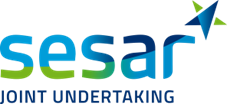


SIGN-AIR has received funding from the SESAR 3 Joint Undertaking under grant agreement No 101114845 under European Union’s Horizon Europe research and innovation programme.
Based on the SYN+AIR previous project, SIGN-AIR offers a digital tool for multimodal transport operators to collaborate in the scope of seamless mobility.
SIGN-AIR platform (web application) provides the means for Transport Service Providers (TSPs) (e.g., airports, airlines, railway operators etc.), to reach Data Sharing Agreements and complementary Smart Contracts with other TSPs and to manage their contractual relationships. While the SIGN-AIR platform only manages the contractual aspects through the data attributes offered by the TSPs, the TSPs will continue managing their data and that of their customers.
Contracts between TSPs allow the determination of clauses that stipulate the action that each party will execute following a set of triggers. As an example, two TSPs can have a contract that stipulates that the airplane will wait (clause) if there is a delay of a train that holds more than 5 passengers (trigger) that are destined to take the plane. The SIGN-AIR platform will facilitate the collaboration between TSPs, making multimodal travel easier to adopt by travellers. This provides benefits for the environment, passenger satisfaction/experience, capacity, cost efficiency and operational efficiency.
With a commitment to promote seamless collaborative partnerships, SIGN-AIR encapsulates an ecosystem characterized by three interwoven modules:
1. Plan: The discovery mechanism used by SIGN-AIR platform will require the minimum input from the TSPs in terms of data such as location and time schedules of operations.
2. Collaborate: A negotiation mechanism will allow the TSPs to define specific clauses of DSA and define the Triggers and Actions of their Smart Contract. A Trigger is a certain condition, event, choice, and an Action is obligation that must be fulfilled in case a Trigger is realized. Blockchain technology will be used to guarantee the security of the agreements.
3. Improve: To monitor the signed contracts and to be able to interface with the passengers. SIGN-AIR platform will be connected with 3rd parties’ services such as Travel Companion apps and MaaS (Mobility as a Service) operators. This connection permits passengers to plan door-to-door multimodal travel and have the benefits of a single ticketing and re accommodation in case of a disruption in a “stepwise” approach using the triggers (if) and actions (then) coded in a Smart Contract.
